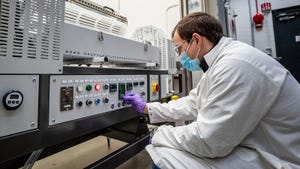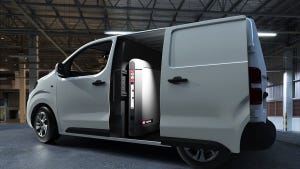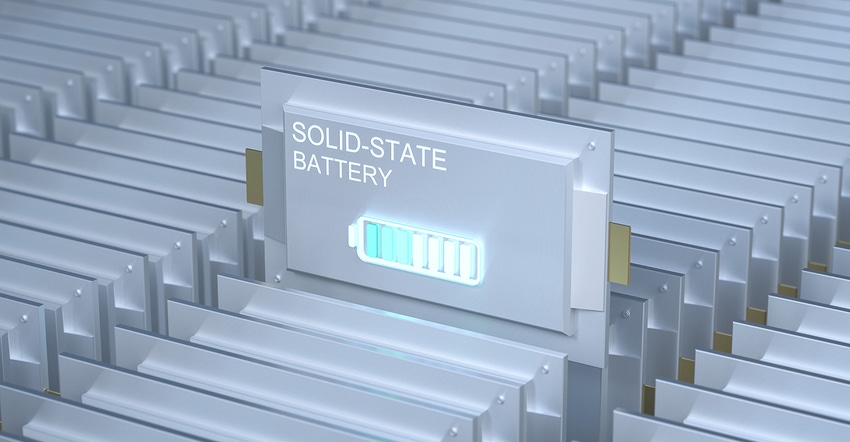
In the world of energy storage, solid-state batteries have emerged as groundbreaking technology with their remarkable safety profile, higher energy density, and potential for scalability. These batteries are now finding application in unexpected and diverse fields, signaling a new era of possibilities. From powering life-saving medical devices to enabling interstellar exploration and fueling wearable technology, solid-state batteries are breaking barriers and reshaping the innovation landscape.
Here are some unexpected solid-state battery applications by innovating companies:
Empowering space exploration
In the demanding realm of space exploration, cutting-edge energy storage solutions are imperative. Traditional batteries face challenges concerning weight, volume, and potential hazards. However, solid-state batteries are gaining traction in the aerospace industry due to their inherent safety and higher energy-to-mass ratio.
SOLiTHOR—a Belgium company dedicated to developing solid-state batteries—is crafting rechargeable solid-state lithium batteries tailored to the space industry's exacting requirements. The company is developing a specialized lightweight material for the space sector to reduce operating costs and extend the time spent in space.
These advanced batteries are built to withstand the extreme temperatures and radiation of space while delivering an efficient and stable power supply for extended missions. According to SOLiTHOR, their technology promises substantial cost savings for space agencies while providing a lighter battery that could reduce weight at liftoff. With every kilogram saved, SOLiTHOR estimates a remarkable reduction of $20,000 in launch expenses.
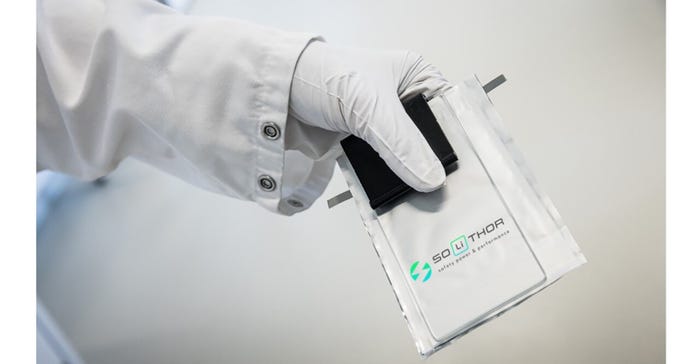
The battery’s components are:
A nano-Solid Composite Electrolyte (nano-SCE), which is not built out of a sulfide, an oxide, or a polymer and does not need high operating temperatures to reach high lithium-ion conductivity.
A lithium nano-anode.
The company asserts that while conventional lithium-ion cells tend to plateau at their practical limit of 800 Wh/L (300 Wh/kg) in terms of energy density, their solid-state battery cells will surpass this 800Wh/L threshold with significant advancements.
SOLiTHOR has recently partnered with Sonaca to develop safe, high-density rechargeable solid-state Lithium battery systems for regional aircraft and urban air mobility. This partnership will also expand to satellite systems as well as defense systems.
Revolutionizing wearable technology
Wearable devices have become an integral part of our lives, tracking health metrics, enhancing communication, and augmenting reality. However, limited battery life remains a challenge. Solid-state batteries offer a compelling solution by providing higher energy densities in compact form factors.
Ilika—a developer of solid-state battery technology designed to meet the specific demands of a wide range of applications in MedTech, Industrial IoT, and more—has developed a miniature solid-state battery technology line for active medical implanted devices, small wearable and industrial IoT sensors called Stereax.
The small form factor of Stereax M300 batteries is a line of ultra-thin, mm-scale, safe, and rechargeable solid-state batteries which contain no liquid or polymer components. The batteries can be configured to be stacked, which gives customers the flexibility to adapt the battery capacity for their application.
Ilika has shipped several first-customer stacked Stereax M300 batteries from its UK manufacturing facility. These shipments are the first of a series of planned deliveries of Stereax M300 batteries to customers, including Lura Health, a leading developer of wearable intraoral biosensors for salivary diagnostics. The company developed wireless, intra-oral, tooth-mounted sensors to enable users to track critical diagnostics in oral health with saliva.
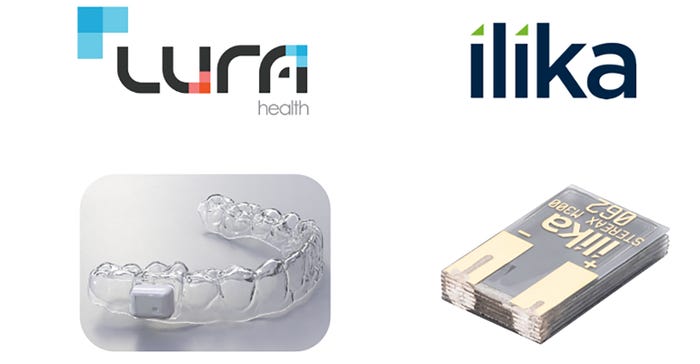
Transforming IoT technology
The Internet of Things (IoT) and sensor technologies have applications in diverse industries, including agriculture, logistics, and industrial automation. Solid-state batteries offer advantages like longer lifespans, reduced maintenance, and compact designs, making them ideal for powering IoT devices.
TDK Corporation already offers a surface-mount device or SMD technology—an electronic device for which the components are mounted or placed directly onto the surface of the PCB using solder—that uses a solid-state rechargeable battery called the CeraCharge.
CeraCharge is a solid-state rechargeable battery that uses a ceramic solid as an electrolyte instead of a liquid electrolyte. Similarly to ceramic capacitors, CeraCharge is based on multilayer technology and combines a relatively high energy density in a very compact space with process security when manufacturing multilayer construction components.
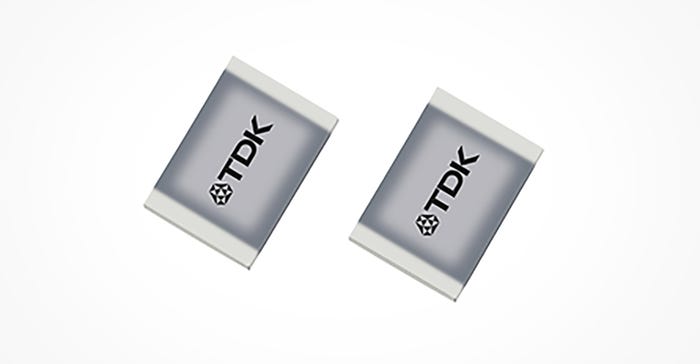
TDK's CeraCharge is widely used in numerous IoT products, with CookPerfect's cooking thermometer being a notable example. The thermometer's metal probe is enhanced by incorporating TDK's CeraCharge, five temperature sensors, and a BLE (Bluetooth Low Energy) communication module. TDK reveals that CeraCharge batteries have great potential in other IoT devices, including backup batteries for real-time clocks (RTC), wearables, and smart sensors.
The global solid-state battery market was valued at $0.5B in 2020 and is projected to reach $3.4B by 2030, growing at a CAGR of 18% from 2021 to 2030. A recent article titled “Solid-State EV Batteries Gain Momentum” shows that there is a surge in popularity within the automotive sector. Still, solid-state batteries are propelling innovation far beyond the confines of this industry. As companies continue to invest in research and development, solid-state batteries are expected to drive progress, making the world safer, more sustainable, and technologically advanced.
About the Author(s)
You May Also Like


